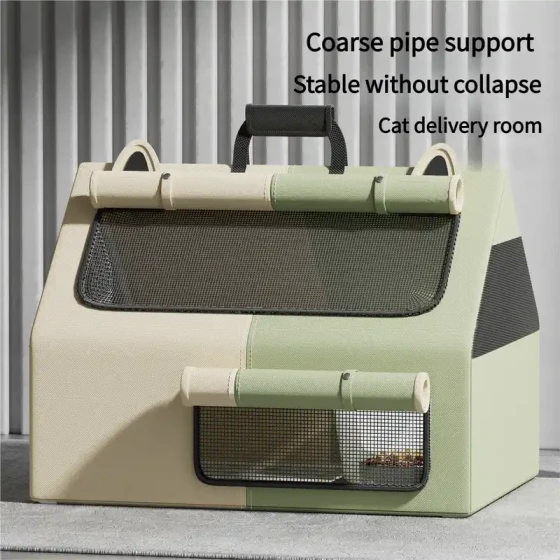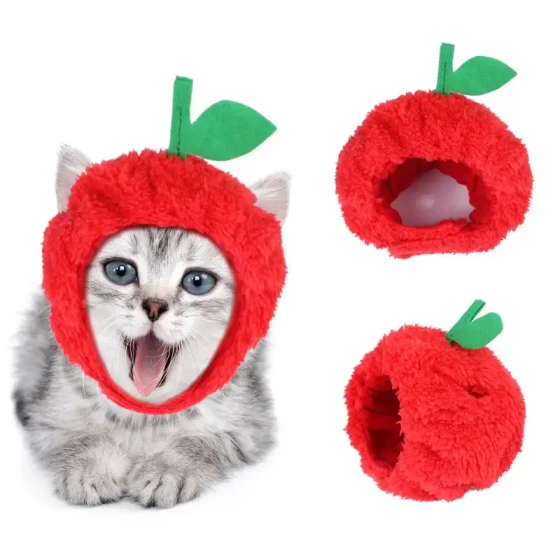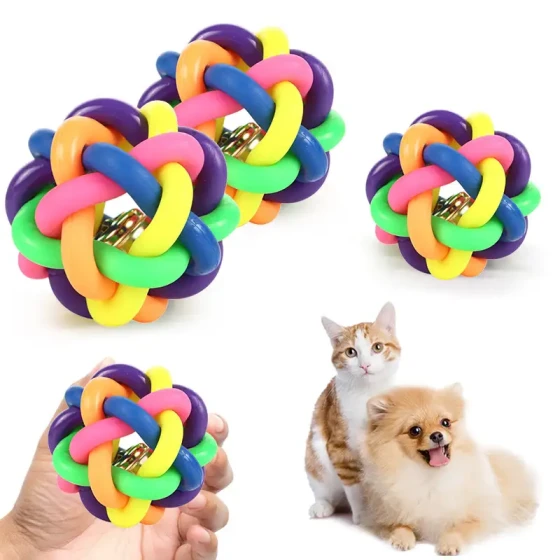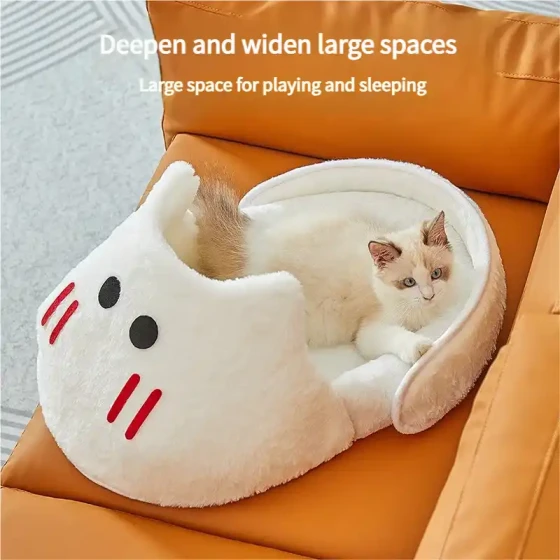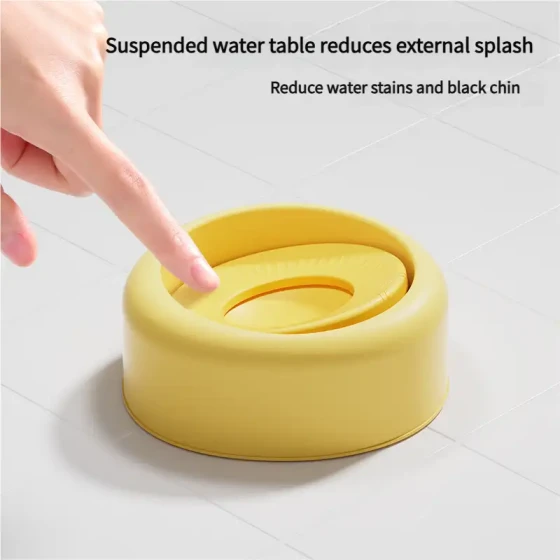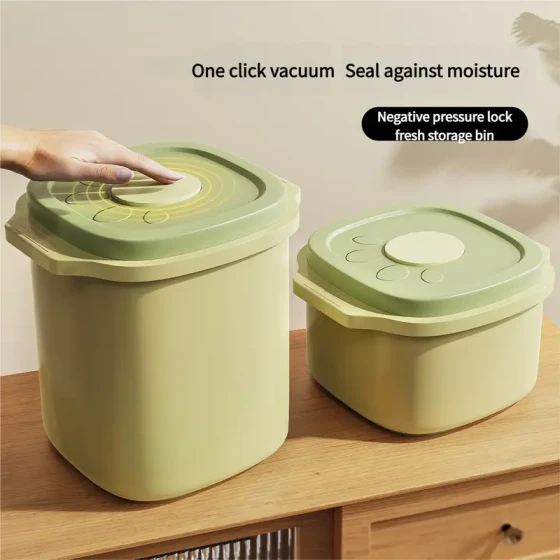Cat Drank a Little Pure Milk_Sugar Harm and Safe Feeding Guide
Cat drank a little pure milk? Beware of the sweet trap and the scientific feeding method
You may think that cats drinking milk is just natural, as seen in cartoons, right? But in fact, for the vast majority of cats, pure milk is not a healthy drink and may even cause sweet troubles, mainly due to the lactose (a type of sugar) inside. So, if your cat secretly drank a little pure milk or you are considering feeding it milk, this article will tell you why you need to be careful and how to scientifically feed your little furry friend.
Why is pure milk a "sweet trap" for cats?
First, we need to dispel a common misconception: cats, especially adult cats, are not naturally able to digest milk. The core issue lies in the main sugar in milk—lactose.
-
Lactose intolerance: a common problem for cats
Imagine some of us humans get stomachaches and bloating as soon as we drink milk because they lack the enzyme "lactase" to break down lactose. Coincidentally, the vast majority of adult cats also face a similar "lactose intolerance" problem. Kittens have enough lactase during nursing to digest the lactose in their mother's milk, but just like our childhood milk consumption, as cats age, most lose or greatly reduce the lactase enzyme in their bodies.
Without lactase, the large amount of lactose in pure milk cannot be broken down and absorbed in the small intestine and therefore reaches the large intestine. In the large intestine, this undigested lactose is feasted upon by bacteria, producing a large amount of gas and lactic acid, which irritates the intestines and causes a series of uncomfortable symptoms. -
Excess sugar burden
Besides the difficulty digesting lactose itself, pure milk, as a nutritionally rich drink, does contain sugar (mainly lactose). Although cats are not sensitive to sweetness, excessive sugar intake is still a health risk for them. Long-term feeding of high-sugar foods (including pure milk) can lead to overweight cats and may trigger health crises like diabetes and dental problems. Just like humans, eating too much sweets can cause weight gain and cavities; cats also need to control sugar intake.
What symptoms might appear after cats drink pure milk?
Even if only a little is consumed, some lactose-sensitive cats may react. Common symptoms include:
* Diarrhea (possibly the most common and obvious symptom)
* Vomiting
* Abdominal bloating, stomach gurgling
* Abdominal discomfort, lethargy
These symptoms usually appear within a few hours after drinking milk. If the cat only drank a little, symptoms may be mild, but if it drank more or is sensitive, symptoms could be more severe, making you feel distressed.
Can kittens drink milk?
Although kittens can digest mother's milk during nursing, pure milk (especially cow's milk) is still not suitable food for them. The components of cat milk and cow's milk differ greatly; the lactose content, protein, and fat ratios in cow's milk are not suitable for kitten growth and development. Feeding kittens pure milk rashly could cause digestive problems or even malnutrition. If hand-feeding kittens is necessary, choose professional cat milk powder or formula that mimics cat mother's milk and suits kitten stomachs and nutritional needs.
Safe Feeding Guide: What do cats really need?
Rather than worrying about whether cats can drink milk, focus on their real nutritional needs:
-
Fresh, clean drinking water: the best drink for cats
For cats, the most important, healthiest, and only necessary drink is water. Always provide fresh, clean drinking water to ensure they can drink anytime, which is vital to maintaining bodily functions and preventing urinary system diseases. You can try different types of water bowls (ceramic, stainless steel) or use a pet water fountain to encourage cats to drink more water. -
High-quality, balanced cat food
Cats are obligate carnivores; they need specific nutrients from meat. High-quality commercial cat food (both dry and wet) is usually scientifically formulated to meet all requirements for protein, fat, carbohydrates, vitamins, and minerals. Choose cat food suitable for your cat's age and physiological stage (kitten, adult, senior, neutered) and health condition, and feed according to packaging instructions or vet advice. -
Be cautious with treats and special foods
Occasionally giving cat-specific treats is fine but control the quantity; treats should not exceed 10% of daily caloric needs. Most human food is unsuitable for cats, especially toxic foods like onions, garlic, chocolate, grapes, and alcohol, which must be strictly avoided.
What to do if your cat accidentally drinks pure milk?
If your cat only licked a few sips or drank a very small amount without showing discomfort, there is usually no need to worry excessively—just observe closely. If the amount drunk is larger, or diarrhea, vomiting, and other symptoms occur, consult your veterinarian promptly, describe your cat's condition, and follow professional recommendations. The vet may advise fasting for a period to let the stomach rest or other treatments.
Frequently Asked Questions (QA)
- Q: Since cow’s milk is not good, what about goat milk? Can cats drink goat milk?
A: Compared to cow’s milk, goat milk usually has lower lactose levels with smaller protein and fat molecules, which might be easier to digest for some cats. There are also pet-specific goat milk powders available on the market. However, even pet goat milk should only be an occasional supplement or treat and not replace staple food or water. The safest choice remains clean water and high-quality cat food. - Q: Is there milk specially made for cats?
A: Yes, some pet brands offer "cat milk" processed to remove lactose or break it down into easier-to-digest forms. If you really want to give your cat milk occasionally, choose these cat-specific milks but do not give too much and they cannot replace daily drinking water. - Q: What if my cat really likes drinking milk?
A: Cats may be attracted to the taste or texture of milk. If they like liquids, encourage them to drink more water. For treats, you can offer cat-specific liquid snacks or meat broth (without salt, onions, garlic, etc.).
Summary
In conclusion, although film and TV often show cats drinking milk, it is more an artistic portrayal than a scientific feeding guide. Lactose in pure milk is the culprit behind most cats’ digestive issues, and excessive sugar is harmful to their health. Providing fresh drinking water continuously, together with balanced high-quality cat food, is the foundation to ensuring a healthy, long life for your cat. If your cat accidentally drinks pure milk and shows discomfort, seek veterinary help promptly. Let’s protect our little furry friends to grow up healthy and happy with scientific love!
References (Non-link format)
- Veterinary or pet health websites’ educational articles on cat lactose intolerance.
- Veterinary professional resources on cat nutrition, obesity, diabetes, and related diseases.
- Pet health institutions’ guides on kitten feeding.
- Popular science articles on the importance of pet drinking water.
- Books on pet nutrition or authoritative pet food guides.
- Lists from veterinary or pet safety websites on foods toxic to cats.
